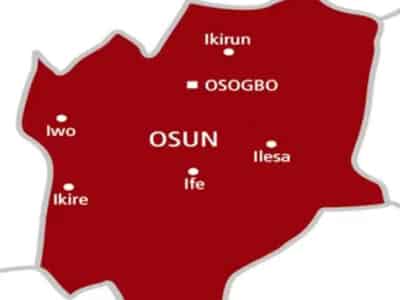
Abubakar Malami, Attorney-General of the Federation (AGF)
The Human and Environmental Development Agenda (HEDA), a civil society organisation, filed a suit against Abubakar Malami, Attorney-General of the Federation (AGF), over the asset tracing, recovery and management regulations, 2019.
The group, in the suit, said certain sections of the asset-tracing law contradicts the Nigerian Drug Law Enforcement Agency (NDLEA) Act, the Immigration Act, and the law on trafficking in persons.
The group said the asset-tracing regulations also violate certain provisions of the Economic and Financial Crimes Commission (EFCC) and the Independent Corrupt Practices and Other Related Offences Commission (ICPC) Acts.
It said the asset-tracing law “merely gives arbitrary power” to Malami “which undermines effective performance” of the two anti-corruption commissions and law enforcement agencies.
It said the duplication of the legal framework ends up creating power blocs that destroy the efficiency of the EFCC and the ICPC.
“This is not good for the level of independence the anti-graft agencies deserve,” Olanrewaju Suraju, HEDA chairman, said.
“HEDA wants the Federal High Court holding in Lagos to determine whether Regulations 3(a) and 3(b) of the Asset Tracing and Regulation law is not in conflict with Section 1 of the Economic and Financial Crimes Commission Act No.1 of 2004 on the coordination of various institutions involved in the fight against money laundering and enforcement of all laws dealing with economic and financial crimes in Nigeria and thereby constituting an infringement of Section 4(1) of the Constitution of the Federal Republic of Nigeria, 1999 (as altered) as to render the said Regulations 3(a) and (b) a nullity,” the originating summons read in part.
“HEDA asked the High Court to declare that Regulations 3(a) and 3(b) of the Asset Tracing, Recovery and Management Regulations, 2019 are in conflict with several sections of the EFCC Act including but not limited to Section 1 of the EFCC Act, 2004 on the coordination of various institutions involved in the fight against money laundering and enforcement of all laws dealing with economic and financial crimes in Nigeria and thereby constituting an infringement of certain sections like Section 4(1) of the Constitution of the Federal Republic of Nigeria, 1999 (as altered) as to render the said Regulations 3(a) and (b) a nullity.
“The section also violates Sections 45(2), 49(1) and (2), Section 57(2) and (3) of Trafficking in Persons (Prohibition) Enforcement and Administrative Act No. 4, 2015 on the disposal of final forfeited assets and thereby constituting an infringement of Section 4(1) of the Constitution of the Federal Republic of Nigeria, 1999 (as altered).
“The law is in conflict with Section 38(2) of the National Drug Law Enforcement Agency Act, Cap. N30, LFN, 2004 on the disposal of final forfeited assets and thereby constituting an infringement of Section 4(1) of the Constitution of the Federal Republic of Nigeria, 1999 (as altered) and Section 91(2) and (3) of the Immigration Act (No. 8 of 2015) on the disposal of final forfeited assets and thereby constituting an infringement of Section 4(1) of the Constitution of the Federal Republic of Nigeria, 1999 (as altered).”




















Comments